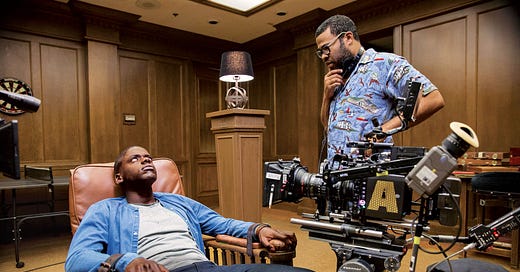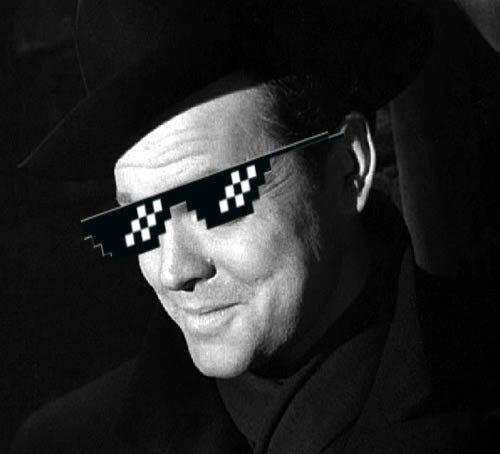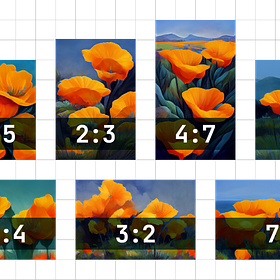Because I’m terrible at time management, I watch a lot of YouTube and read a lot of Substack. So I’ve decide to pass along the wheat I’ve divided from the chaff as a regular feature.
What Does a Director Do?
I’ve been planning on writing a video essay about the flaws in auteur theory, and then not only did Moviewise beat me to it, but he probably said it better than I could.
I’ve never seen the Orson Welles video he clips from, and I absolutely love it:
It’s the only profession in the world where you can be incompetent, and go on being successful for thirty years with nobody ever discovering it.
Pretty Shots
recently wrote an article that got me thinking.Something strange is happening to how we talk about movies. Our social media feeds are bloated with “One. Perfect. Shot.” These perfectly composed isolated frames, frozen in time and stripped of context, have become one of our primary ways of appreciating cinema.
I’m as much a sucker for these images as anyone. But even as I salivate, I’ve always had a nagging sense that something about this feels somehow… cheap.
My reservations aren’t just due to a nebulous sense of ill-placed artistic snobbery (although I’m sure that’s in the mix). Beautiful though these frames are, out of context they feel like cinematic snack food — digestible morsels that slip down the gullet without providing sustenance. I fear that the more we consume them, the more we risk forever altering our palette.
I've definitely fallen prey to the "pretty shots" syndrome. Hell, sometimes even the great David Bordwell did. And like snack food, there’s nothing wrong with it, in proper amounts.
William cites Notes on the Cinematograph,1 Robert Bresson’s classic… book? Tract? Random collection of notes? Bresson is a bit of a nut, and although I don’t agree with everything he writes, it’s a thought-provoking read. But I do agree with the core idea that William draws from Bresson, that true cinema has to be its own art form.
There is nothing to expect from a CINEMA anchored in the theatre.
William does, I fear, overstate his case in saying that film is the only medium that can juxtapose images (using the famous time cut from 2001 as an example). This is just as, if not more, important in comics.
That being said, I’m glad I recently discovered
, and I subscribed to see what he writes next. Speaking of subscribing…Vertical Views
I don’t know why, but rollercoaster POV videos have started popped up in my shorts feed. No, it’s not a video essay, but I was struck by how effectively it used the vertical format.
In general, looking ahead is the same as looking up in a frame. At the same time, rollercoaster tracks are narrow, so most of a wide frame would be wasted.
There's a snobbish bias against vertical framing—and it is often misused—but there are circumstances when it's called for. I wrote about the proper uses of vertical and horizontal formats previously—
Framing Aspect Ratios
I’ve been experimenting with YouTube Shorts on the Too Much Film School channel lately. Some were original videos, while others I clipped from my longer video essays, just to see how The Algorithm™ reacted.
Reframing Aspect Ratios
This is the second part of a two-part series on aspect ratios. The first part was a brief history of changing aspect ratios; this second part pertains to aspect ratios in our modern, mobile world.Too Much Film School is a reader-supported publication. To receive new posts and support my work, consider becoming a free or paid subscriber.
That’s how the publisher spells it, although countless people, including Wikipedia, write it as “cinematographer.” (You know how I feel about Wikipedia.)







Thanks for the shoutout, Matt! And interesting point re comic books!